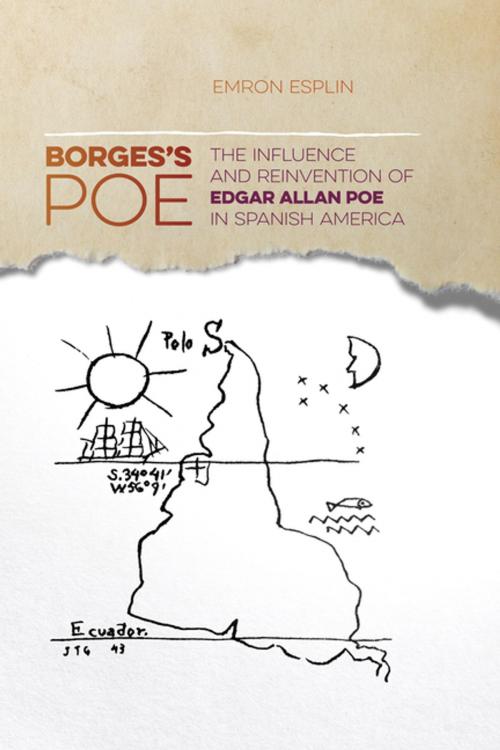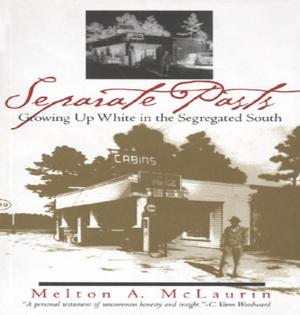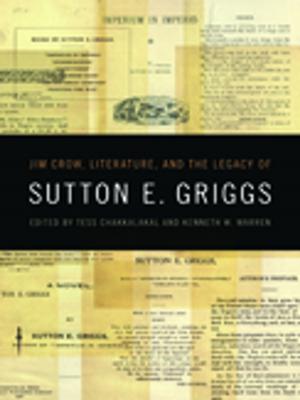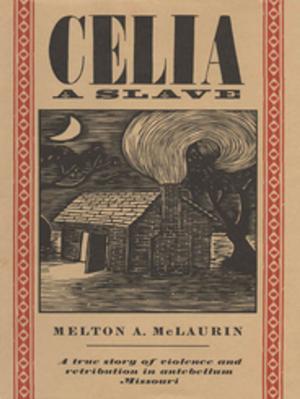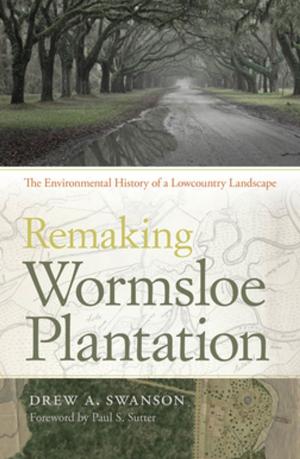Borges's Poe
The Influence and Reinvention of Edgar Allan Poe in Spanish America
Fiction & Literature, Literary Theory & Criticism, Central & South American, American| Author: | Emron Esplin, Jon Smith, Riché Richardson | ISBN: | 9780820349046 |
| Publisher: | University of Georgia Press | Publication: | March 15, 2016 |
| Imprint: | University of Georgia Press | Language: | English |
| Author: | Emron Esplin, Jon Smith, Riché Richardson |
| ISBN: | 9780820349046 |
| Publisher: | University of Georgia Press |
| Publication: | March 15, 2016 |
| Imprint: | University of Georgia Press |
| Language: | English |
Edgar Allan Poe’s image and import shifted during the twentieth century, and this shift is clearly connected to the work of three writers from the Río de la Plata region of South America—Uruguayan Horacio Quiroga and Argentines Jorge Luis Borges and Julio Cortázar. In Borges’s Poe, Emron Esplin focuses on the second author in this trio and argues that Borges, through a sustained and complex literary relationship with Poe’s works, served as the primary catalyst that changed Poe’s image throughout Spanish America from a poet-prophet to a timeless fiction writer.
Most scholarship that couples Poe and Borges focuses primarily on each writer’s detective stories, refers only occasionally to their critical writings and the remainder of their fiction, and deemphasizes the cultural context in which Borges interprets Poe. In this book, Esplin explores Borges’s and Poe’s published works and several previously untapped archival resources to reveal an even more complex literary relationship between the two writers. Emphasizing the spatial and temporal context in which Borges interprets Poe—the Río de la Plata region from the 1920s through the 1980s—Borges’s Poe underlines Poe’s continual presence in Borges’s literary corpus. More important, it demonstrates how Borges’s literary criticism, his Poe translations, and his own fiction create a disparate Poe who serves as a precursor to Borges’s own detective and fantastic stories and as an inspiration to the so-called Latin American Boom.
Seen through this more expansive context, Borges’s Poe shows that literary influence runs both ways since Poe’s writings visibly affect Borges the poet, story writer, essayist, and thinker while Borges’s analyses and translations of Poe’s work and his responses to Poe’s texts in his own fiction forever change how readers of Poe return to his literary corpus.
Edgar Allan Poe’s image and import shifted during the twentieth century, and this shift is clearly connected to the work of three writers from the Río de la Plata region of South America—Uruguayan Horacio Quiroga and Argentines Jorge Luis Borges and Julio Cortázar. In Borges’s Poe, Emron Esplin focuses on the second author in this trio and argues that Borges, through a sustained and complex literary relationship with Poe’s works, served as the primary catalyst that changed Poe’s image throughout Spanish America from a poet-prophet to a timeless fiction writer.
Most scholarship that couples Poe and Borges focuses primarily on each writer’s detective stories, refers only occasionally to their critical writings and the remainder of their fiction, and deemphasizes the cultural context in which Borges interprets Poe. In this book, Esplin explores Borges’s and Poe’s published works and several previously untapped archival resources to reveal an even more complex literary relationship between the two writers. Emphasizing the spatial and temporal context in which Borges interprets Poe—the Río de la Plata region from the 1920s through the 1980s—Borges’s Poe underlines Poe’s continual presence in Borges’s literary corpus. More important, it demonstrates how Borges’s literary criticism, his Poe translations, and his own fiction create a disparate Poe who serves as a precursor to Borges’s own detective and fantastic stories and as an inspiration to the so-called Latin American Boom.
Seen through this more expansive context, Borges’s Poe shows that literary influence runs both ways since Poe’s writings visibly affect Borges the poet, story writer, essayist, and thinker while Borges’s analyses and translations of Poe’s work and his responses to Poe’s texts in his own fiction forever change how readers of Poe return to his literary corpus.
